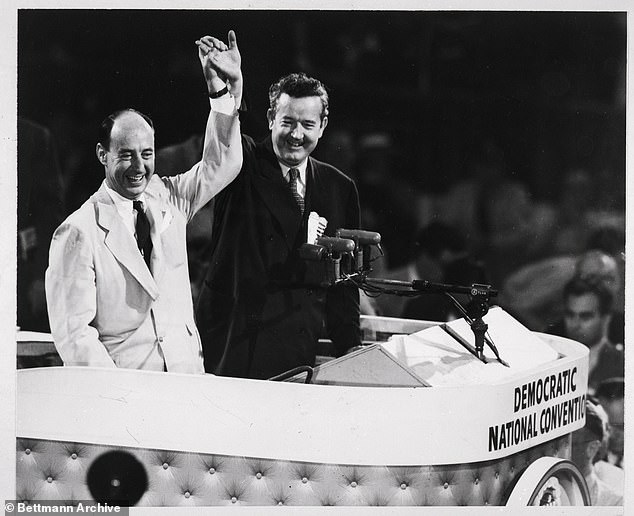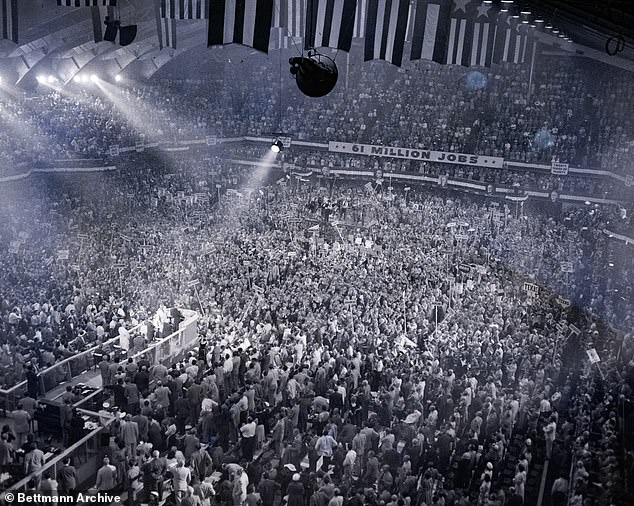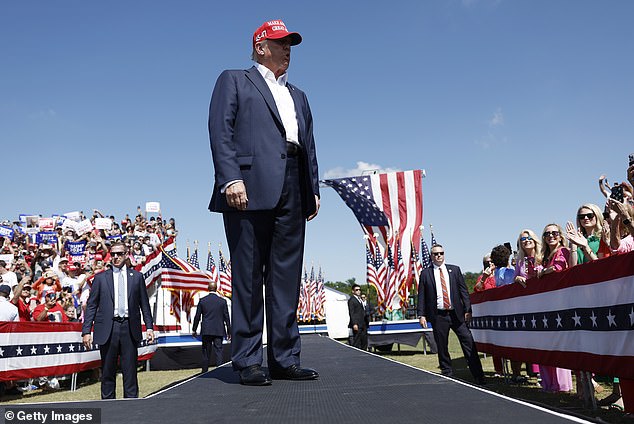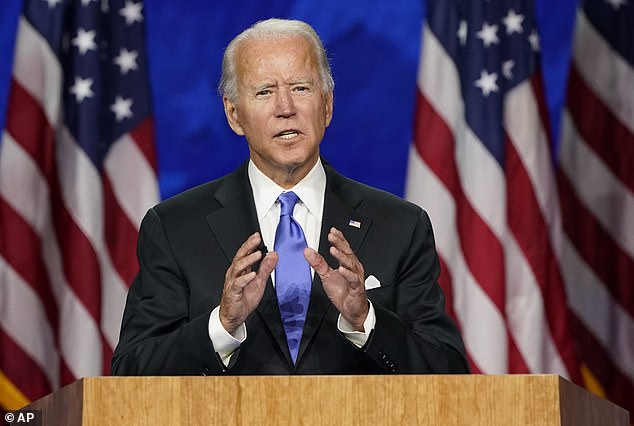President Joe Biden has dropped out of the presidential race and endorsed Kamala Harris as his replacement as head of the Democratic ticket.
Most Democrats have already united behind their vice presidential nominee, but others have also said the party needs an open convention.
Barack Obama has called for an “open race” to choose Biden’s replacement, although Harris may be the only realistic contender
A brokered convention is something Democrats have not experienced in 70 years and could sow chaos amid calls for all members to unite to defeat Donald Trump.
Biden gathered nearly 4,000 pledged delegates to support him as millions of voters cast their ballots for the incumbent president during the primaries.
Biden’s momentous decision opens the door to a wild and potentially grueling nomination process next month at the convention, with votes continuing until a candidate is chosen by a majority of eligible delegates.
Biden speaking nearly four years ago on the fourth day of the 2020 Democratic National Convention in Wilmington, Delaware
A brokered convention is a presidential nominating convention in which delegates fail to nominate a candidate in the first round. This means that no candidate receives the votes of more than half of the delegates in the first round.
There was a time when brokered conventions were held regularly because the major parties did not hold primaries to allocate delegates as they do today.
This led to a series of complex negotiations between some of the party’s power brokers, typically federal and state leaders, including party officials, legislators and governors.
Voting continues in a round of ballots until one candidate receives a majority of delegates.
The last time there was a negotiated convention was in 1952.

Then-Illinois Governor Adlai Stevenson and Senator John Sparkman at the Democratic National Convention in Chicago in 1952, the last time there was a brokered convention

Stevenson won the Democratic Party nomination in 1952 on the third ballot at the Democratic National Convention in Chicago.
In the end, Democrats were able to nominate Democrat Adlai Stevenson on the third ballot.
That year, Republican Dwight D. Eisenhower received only nine fewer votes on the first ballot, leading some delegates to switch their votes to make him the official nominee.
The longest convention ever held was 100 years ago in 1924, when it took Democrats sixteen days and 103 ballots to nominate diplomat John Davis. Franklin Delano Roosevelt needed four ballots to secure the Democratic nomination in 1932.
“We don’t really have any standards or benchmarks or known procedures,” said Leonard Steinhorn, a professor at American University, of what a negotiated convention would look like in 2024. “Right now we’re kind of walking in the wilderness,” he said.
While the terms negotiated convention and contested convention are often used interchangeably, there is a key difference.
A contested convention is one in which one candidate has done well but not well enough to secure the nomination on the first ballot, so another candidate tries to convince delegates to abandon the front-runner.
According to Elaine Kamarck of the Brookings Institute, this has been more common in the modern era than a negotiated convention.
When Biden was in the race, the convention was seen more as a public relations event for the party.
But his decision to drop out of school opened the door to a process to select someone to take over from him.
Political parties have largely tried to avoid brokered and contested conventions because history shows that candidates who need multiple votes to be nominated are less likely to win the White House.
Of the sixty Democratic and Republican nominating conventions from 1868, after the Civil War, through 1984, eighteen candidates were nominated on multiple ballots, according to Pew.
Of these, only seven were elected president, and among them, four were competing against other candidates who also faced multiple votes to receive the nomination.
The last time a Democrat argued vehemently for an open convention was the late Sen. Ted Kennedy in 1980. The senator challenged President Jimmy Carter for the nomination. Ultimately, delegates had to stand their ground based on their state’s results when voting. But Carter lost the election that fall to Ronald Reagan.
Before that, Republican President Gerald Ford had entered the 1976 convention with a clear majority of delegates, but not enough to secure the nomination, earning him a serious challenge from then-Governor Reagan. He ended up winning the first round, but then lost the election to Carter.
“We want a united party behind the person who appears to be the popular choice of the members of that party, of the voters,” Steinhorn said.
Determining the nominee at the convention would force the party and campaign to go to great lengths to introduce the nominee to the public, raise funds and campaign before Election Day.

Donald Trump speaks at a rally in Chesapeake, Virginia, on June 28. Republicans are holding their convention from July 15-18, where the former president will officially become the party’s presidential nominee.
What could benefit Democrats if they hold a brokered convention in 2024 is that their opponent is Trump.
“I“This is going to be an unusual year because Donald Trump has very, very high negative ratings,” Steinhorn said.
While Democrats are reportedly playing catch-up heading into November in their messaging and on-the-ground work, there could be one key difference.
“Because Donald Trump is so uniquely unpopular as an opposition party candidate, he potentially gives the Democratic Party a small advantage,” he added.


